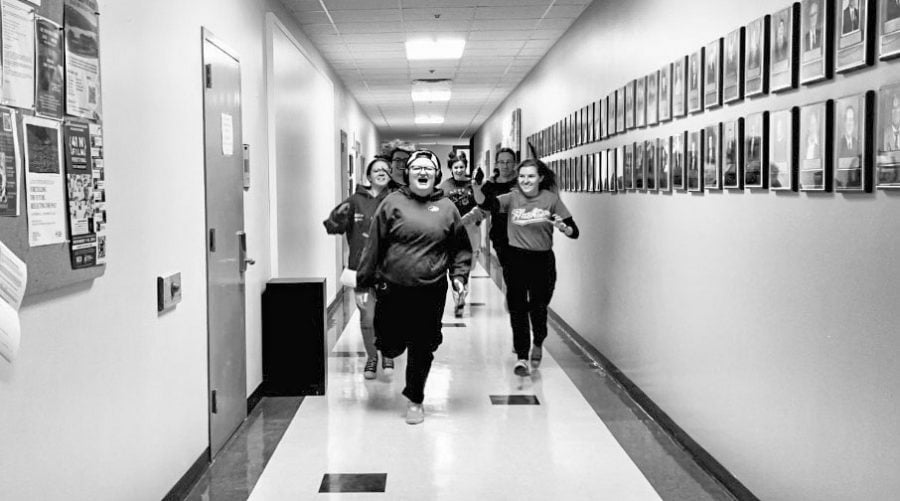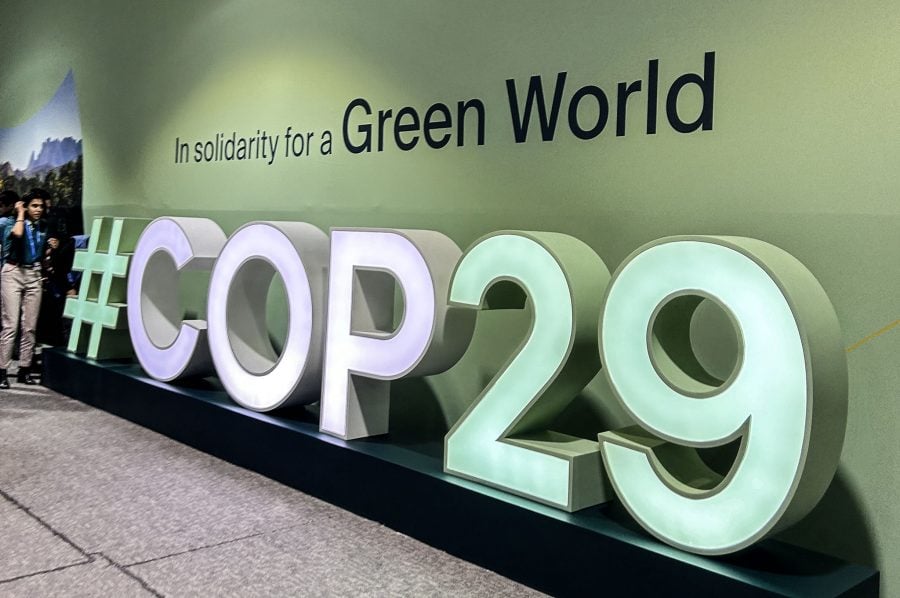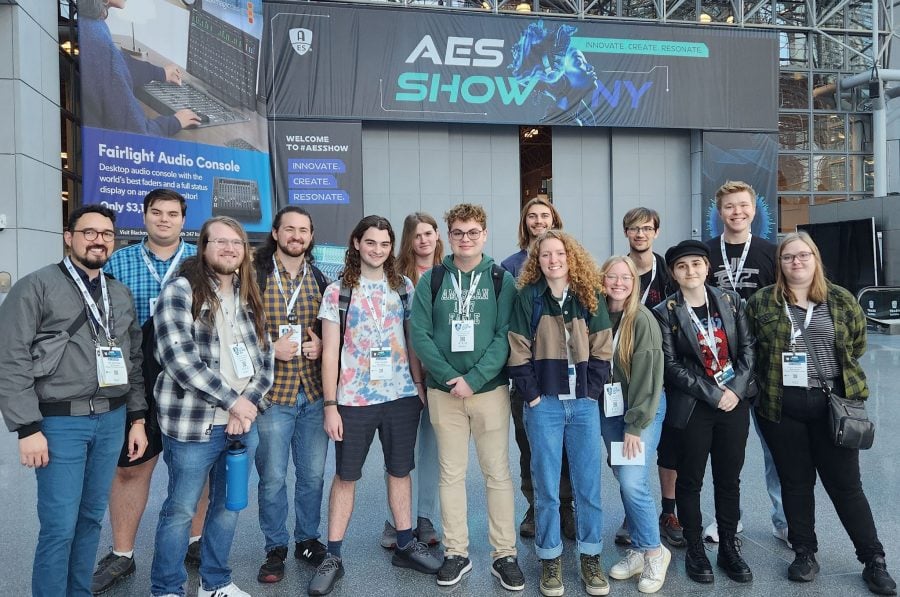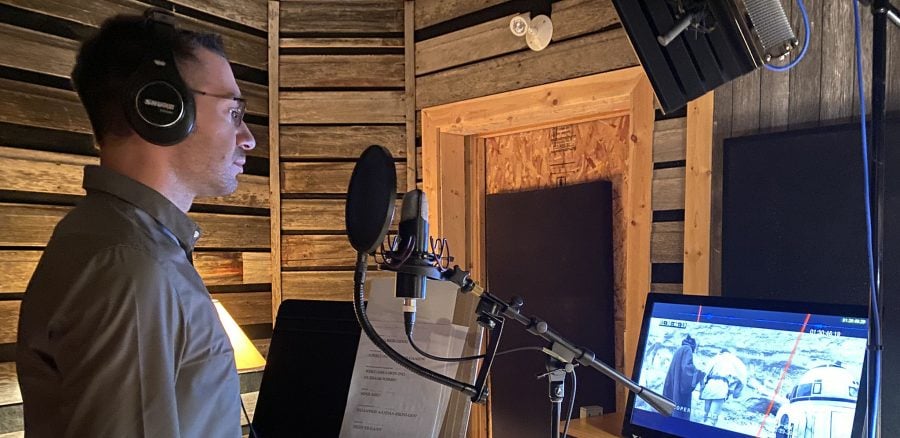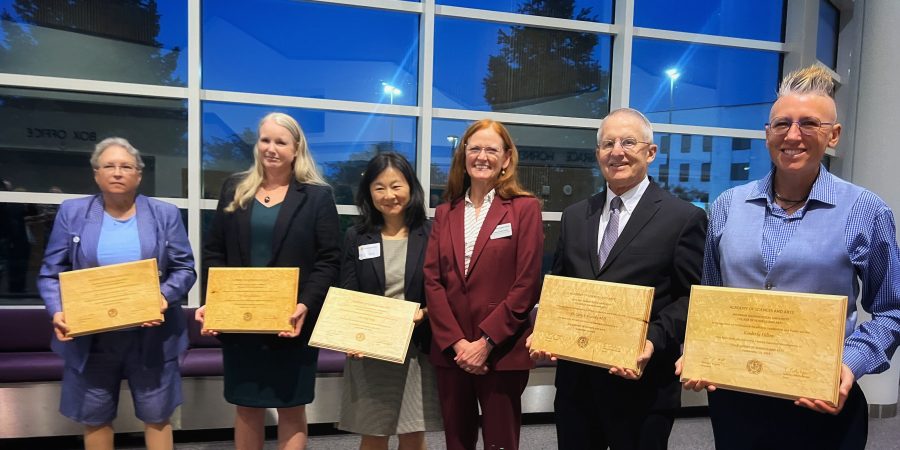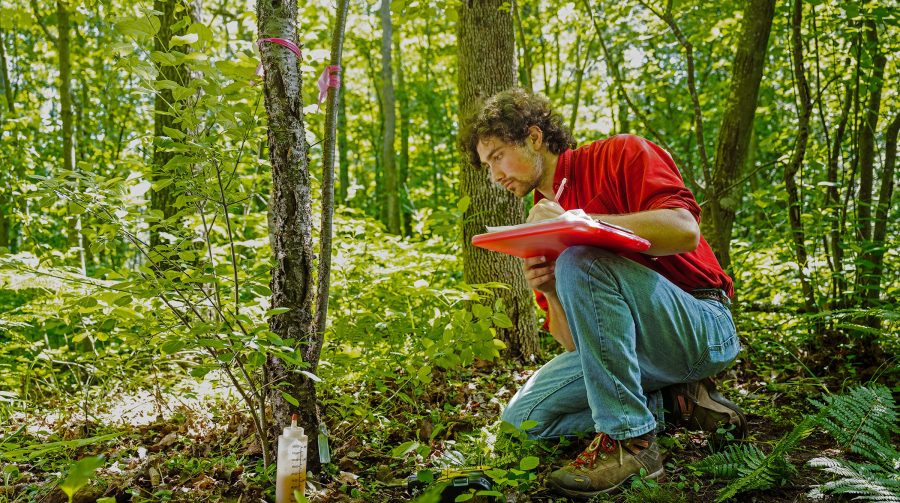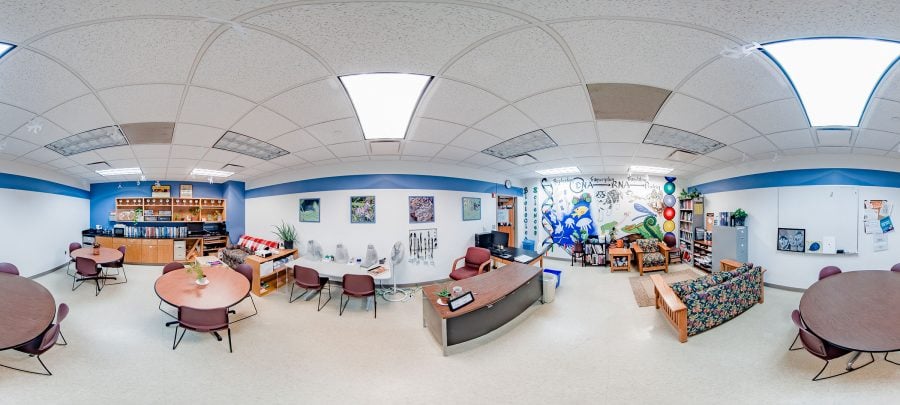
Hundreds of Michigan Tech undergraduates cross the threshold from college student to graduate each semester. Meet Jessica Gadbury and Riley Stichter, two biological sciences students who graduate with the Class of 2024 this month, as they share a look back at their journeys, what kept them going through challenges and obstacles, and what drives them to make the world a better place.
